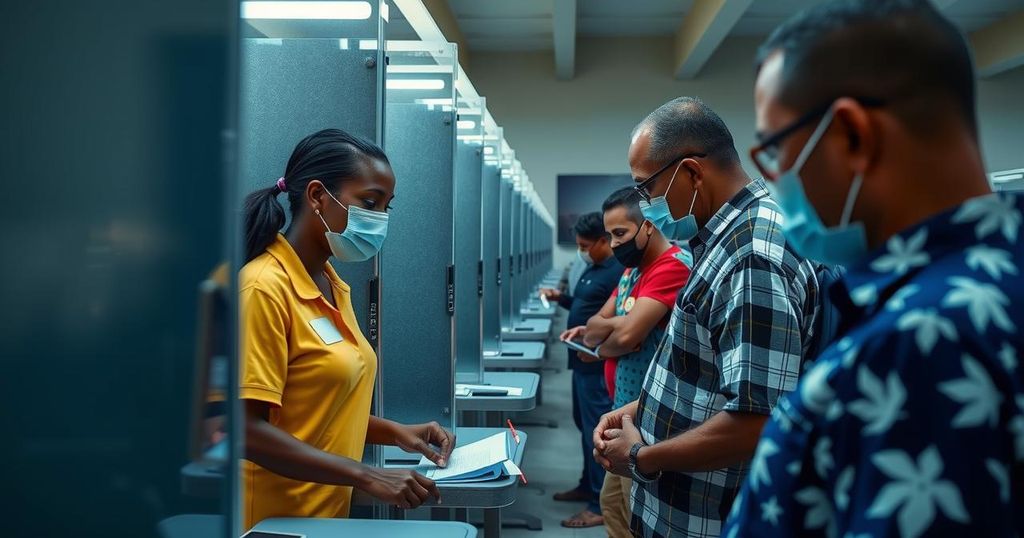Mauritius Prepares for General Election Amidst Wire-Tapping Controversy
Mauritius prepares for a crucial election overshadowed by a wire-tapping scandal, raising fears of declining democratic values. Prime Minister Pravind Jugnauth, seeking re-election, faces allegations of corruption while a new coalition challenges the status quo. The political landscape remains complicated with historical influences and recent diplomatic gains, particularly regarding the sovereignty of the Chagos Islands.
Mauritius is set to conduct its general election amidst a significant wire-tapping controversy that has raised concerns over civil liberties within the nation. This election arrives shortly after Britain’s historical agreement to return the sovereignty of the Chagos Islands. Prime Minister Pravind Jugnauth, seeking re-election, faces increased scrutiny due to leaked recordings involving various politicians and the media. Although the authorities attempted to curb social media access to suppress the situation, they quickly retracted this decision due to backlash from both the opposition and the public. The nation has enjoyed relative stability and economic prosperity since gaining independence in 1968, yet the current political climate raises alarms regarding the erosion of its democratic principles. Democracy expert Roukaya Kasenally has noted that systemic issues, including rampant corruption and a lack of robust institutions, threaten the integrity of governance in Mauritius. The recent election will be the twelfth since independence, with over one million registered voters, amid growing skepticism regarding the health of its democratic framework. Three prominent families have historically held power in Mauritius, and current Prime Minister Jugnauth continues in this legacy, having succeeded his late father. His main opponent is seasoned politician Navin Ramgoolam, with a newly formed coalition—Linion Reform—challenging the traditional power dynamics by demanding governmental reforms and transparency. Despite Mauritius’ historic diplomatic gains, implications surrounding potential shifts in U.S. foreign policy may affect the future of its relations with Britain concerning the Chagos Islands.
Mauritius, an island nation in the Indian Ocean, is regarded as one of Africa’s success stories due to its stable democracy and thriving economy, primarily based on tourism, manufacturing, and financial services. However, recent events, including a wire-tapping scandal, highlight growing concerns regarding civil liberties and government accountability. With the upcoming elections, the political landscape is influenced by long-standing practices of familial political succession, as well as ongoing challenges regarding representation, particularly among the Creole population, which faces systemic disadvantages.
In conclusion, the upcoming election in Mauritius unfolds against a troubling backdrop of wire-tapping allegations and the potential erosion of democratic values. The political arena is marked by established leaders and new contenders advocating for reforms amid widespread public unease regarding governance. As Mauritius approaches this crucial vote, it faces significant questions regarding accountability, representation, and the future of its democratic institutions.
Original Source: www.seychellesnewsagency.com




Post Comment